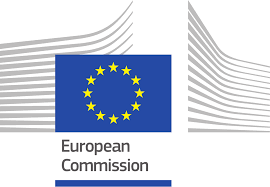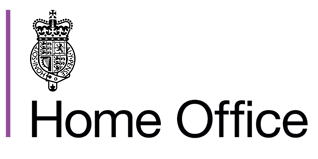PRESS RELEASE : Opening remarks by Commissioner Simson at the press conference of the Energy Council [October 2022]
The press release issued by the European Commission on 25 October 2022.
Thank you, Jozef, and good afternoon, everyone.
Exactly a week ago, the Commission presented the most recent package of proposals to tackle the energy crisis, dedicated to gas prices in particular. Following the endorsement and guidance of the European Council last week, we now had a more detailed discussion with the ministers on how to move forward.
The package has a number of important elements that we will jointly work on, to be ready for adoption at the next Extraordinary Council.
First, making joint purchasing of gas a reality. There was strong support for this idea among the ministers and a keen interest in the details of the set-up. It is clear that combining our strength on the global market is to our advantage. If the proposed two-step model will be agreed at the November Council, we will be ready to jointly buy gas to refill the storage after this heating season.
This process will cover at least 13.5 billion cubic meters of gas, enough to be attractive to the suppliers and meaningful for the market. In parallel, we will continue negotiations with our partners to secure necessary supplies for this winter and beyond. I will be in Norway after tomorrow for a High-Level Energy Dialogue.
Second, addressing the high gas prices. With our proposal, we ask ACER to develop by 31 March a new complementary EU gas benchmark that adequately reflects the current market situation. There is a broad consensus that this is a useful step to take to increase transparency and predictability of prices.
While the new benchmark will be ready by the next filling season, we have also proposed to establish a dynamic cap on TTF that can be used immediately to address excessively high gas prices. Based on the constructive discussion today, the Commission will swiftly work on the details of the proposal. As we develop this short-term tool, we must ensure security of supply and avoid increasing gas consumption.
In addition to these two measures, the Commission has tasked ESMA with developing circuit breakers for intra-day derivatives trading.
The third pillar of the package is strengthening solidarity between Member States in case of severe supply disruption in the coming winter. Our proposal includes default rules that will apply in case there is no bilateral solidarity agreement in place. We will also propose a mechanism for the allocation of gas between Member States for which an emergency has been declared.
Following the European Council conclusions, we will further examine the cap on gas used for electricity production, including a cost-benefit analysis. The Member States have received a Commission analysis of the measure as input for today’s discussions.
The European Council conclusions also invite a fast-track simplification of permitting procedures for renewables and grids, including through emergency measures. As you know, the Commission already proposed in May measures to streamline and speed up the permitting process. I am calling on both the Council and the European Parliament to have their position ready by early November.
As we are tackling the current energy crisis, we cannot forget about our longer-term plans. I therefore very much welcome today’s discussion on the hydrogen and gas markets decarbonisation package. Scaling up green hydrogen and biomethane will help us to phase out Russian fossil gas fully and for good. Today’s discussion makes me confident that the Council can agree on its position by December.
We took one step closer to a more energy-efficient future with the Council reaching a political agreement on the Energy Performance of Buildings Directive. Buildings consume 53% of gas in the EU, making it a key sector for decarbonisation and energy security, as well as reducing energy bills. Today’s agreement is less ambitious than the original Commission proposal. But it is a step forward and a basis for engaging in the negotiations with the Parliament as soon as possible – to give the necessary certainty to people and businesses involved.
Finally, today’s Council gave me the opportunity to inform Ministers about the critical energy situation of two countries in our European family.
In Ukraine, Russia’s recent shelling has targeted energy infrastructure and caused severe damage. 30% of Ukrainian equipment, such as transformers, circuit breakers and power lines have been destroyed, causing mass outages.
It is urgent that the EU steps up its support to quickly replace the damaged infrastructure. What is at stake, is the protection and well-being of tens of thousands of households, vulnerable people, children and elderly this coming winter. I have written to all the ministers and called for their urgent support in this.
As you remember, we have set up months ago a fund at the Energy Community Secretariat, dedicated to repairing specific energy infrastructure in Ukraine. We have now collected 20.5 million euros in donations, but we clearly need more. I recalled that Member States have another option available to help Ukraine’s energy repair and reconstruction. This is to donate energy equipment through Commission’s Emergency Response Coordination Centre. This mechanism has already facilitated more than 60 energy-related donations.
Private companies have also been generous and delivered supplies worth over 10 million euros. We are encouraging them to do even more and can help with transporting the donated equipment to Ukraine. Besides energy equipment, we need to continue supplies of gasoline and diesel.
In Moldova, the situation is also increasingly challenging. Moldova relied on Ukraine for 30% of its electricity imports. The forced suspension of electricity exports from Ukraine poses a major problem for Moldova
Last week, Moldova was also informed that gas flows from Gazprom will be further reduced and so will the electricity supplies from Transnistria. This is another clear example that Russia is weaponising energy supplies. Moldova has secured some alternative supplies from Romania for a limited period, but this is not enough.
We are working with the Energy Community to ensure Moldova can import gas and electricity from alternative sources other than Transnistria. But the challenge is not only the access to supply, but the financing as well.
We are looking into ways of stepping up the EU support.
This Council was in the end about solidarity and a united response to the crisis. I am glad that today’s discussions, and the decisions taken on the EPBD, show that we remain united both in driving forward our Green Deal agenda and in shaping effective solutions to the energy crisis, both for the EU Member States and our neighbours.



